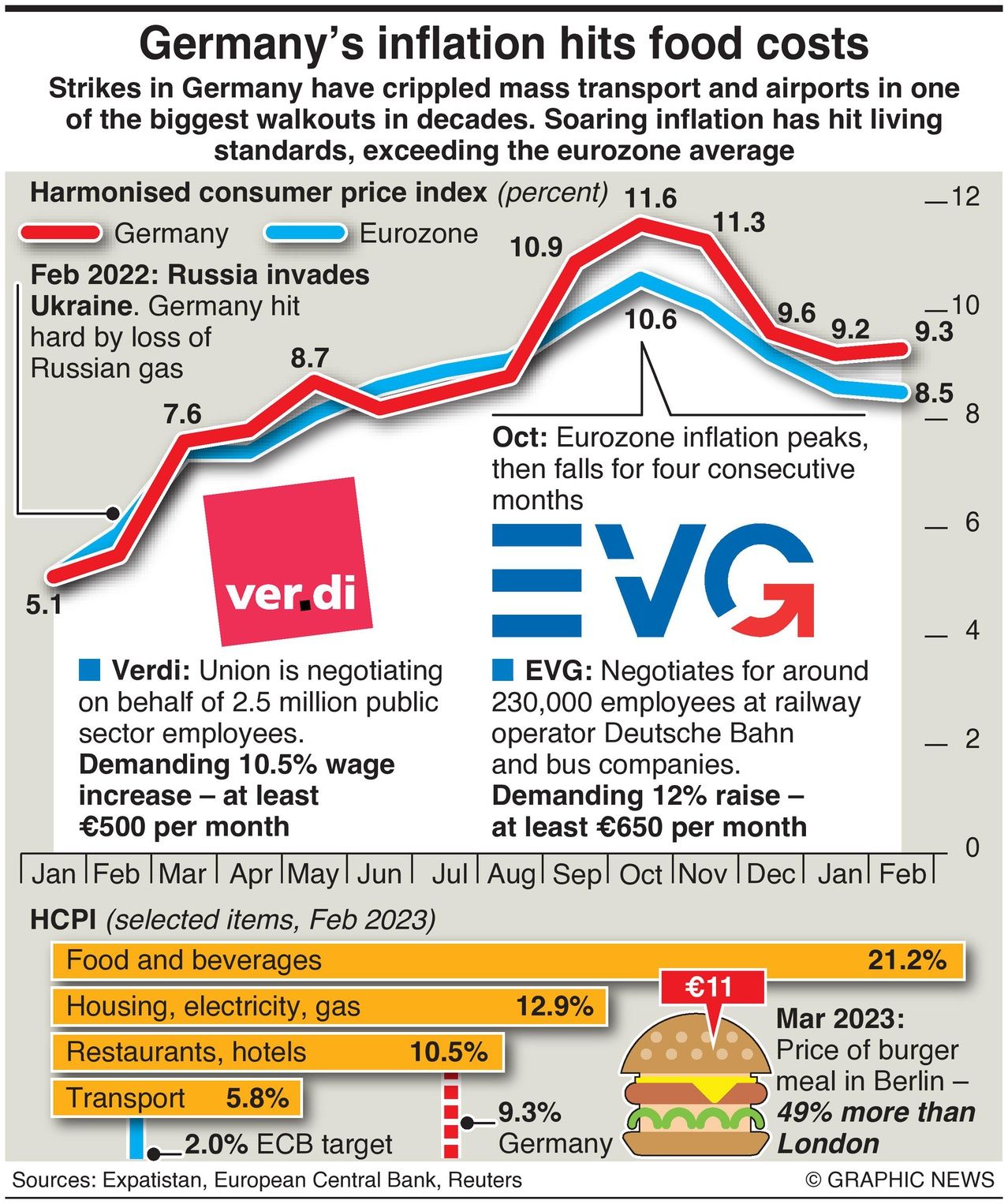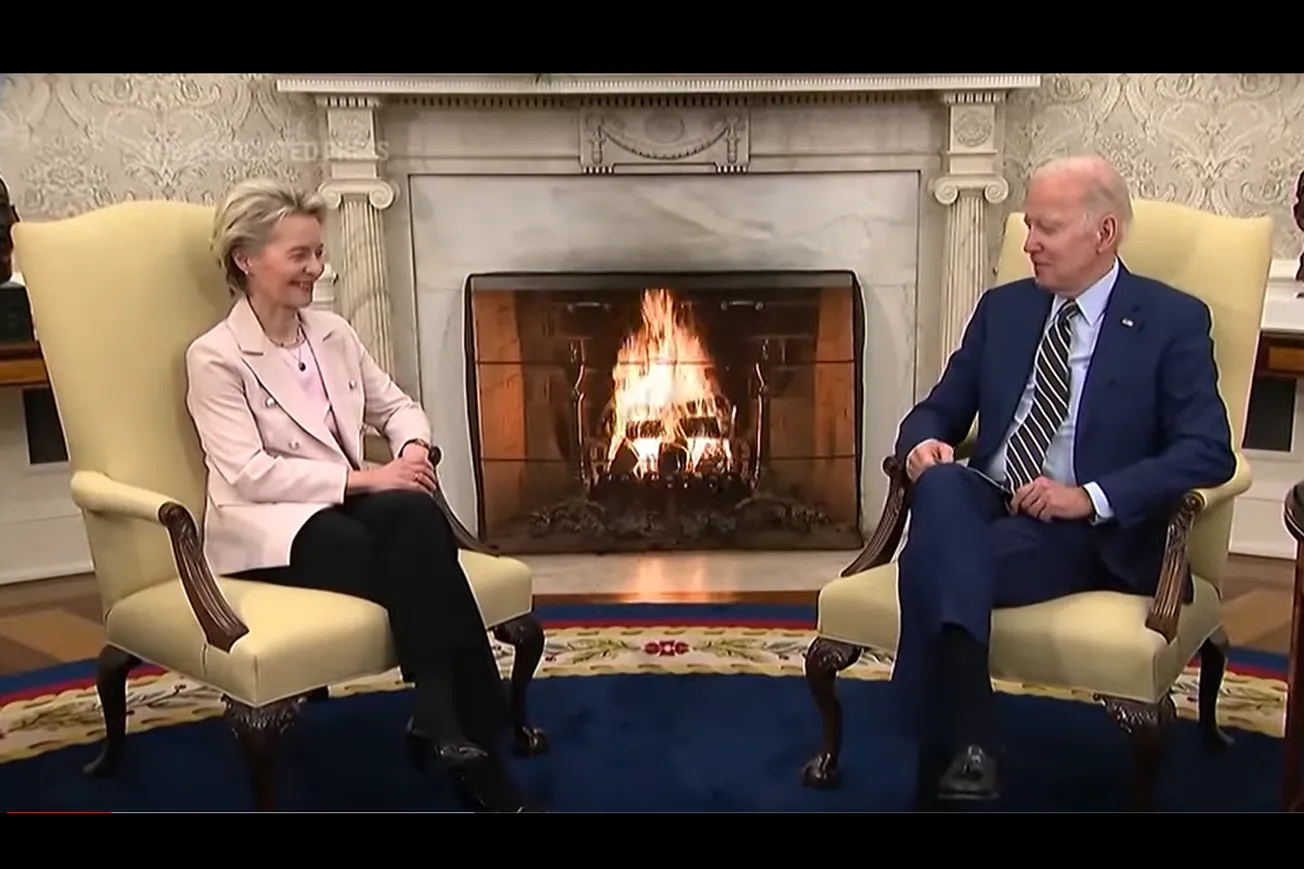For over 12 months, the leaders of the European Union have blindly followed President Biden's strategy of isolating Russia. Eager to please Washington, EU leaders have one-upped each other in bold public comments, criticizing Russia, China, and any other country that dares to deviate from the E.U. narrative. Each comment got them likes, retweets, and media attention, the kind that politicians covet.
But isolating Russia and trade with the world's largest country rich in natural resources has severely cost European families. By helping Washington prolong the war, the E.U. has caught itself in a death spiral of extremely high inflation, tight money under astronomically-high interest rates, and wages not rising fast enough. Ordinary E.U. citizens who are losing patience with governments' inaction to help are taking to the streets, and it has not been a pretty sight.
Among the first to warn that an extended war was not in Europe's best interests was Victor Orban, the four-time elected Hungarian leader. At the CPAC in Dallas last August, Orban said, "Without American-Russian talks, there will never be peace in Ukraine. More and more people will die and suffer, and our economies will come to the brink of collapse."
The Biden administration, which does not like Orban and disinvited him from a recent conference on democracy, ignored his warnings and pushed the E.U. further into war. The administration engineered the Russian oil-price cap scheme on the sanctions front while continuing to pressure the E.U. to extend financial penalties on Russian entities. While the actions had the intended effect of further isolating Russia, they came at a severe cost to the average E.U. voter.
Two months after Orban's speech, Romanian citizens kicked off the first of many public protests complaining about the rising cost of living. Three weeks later, Belgian trade union confederations led strikes to challenge the impact of inflation on purchasing power.
But no strike action received as much attention as the U.K. strikes of February 2. Nearly half a million teachers, civil servants, train drivers, and others struck work in the United Kingdom to demand above-inflation pay rises. According to the BBC, the government responded with a pay package that included a £1,000 one-off payment this year and a 4.3% pay rise for most staff next year. Nearly 87% of union members rejected the offer calling it "insulting." Now, members of the National Education Union in England have announced strikes on April 27 and May 2. In Northern Ireland, five teaching unions will strike on April 26.
Across the English Channel in Germany, passenger trains ground to a halt on Friday as workers joined a nationwide strike call to demand pay rises for railway staff. The action coincided with similar walkouts at several major German airports starting Thursday. All bus lines, regional rail, and city tram services stopped operating, crippling German life. Reuters reported that Germany's Verdi union called for a one-day strike of air security staff at Berlin airport on Monday, April 24, which prompted the airport to cancel all passenger departures for the day.
But, on Sunday morning, at the 11th hour, the AP reported that German government officials and labor unions reached a pay deal for more than 2.5 million public-sector workers, ending a lengthy dispute and heading off the possibility of disruptive all-out strikes. [DW reports that the Berlin strike is still on and all flights will be canceled on Monday]. The settlement was not cheap: a one-time tax-free bonus of $3,300 per employee to be paid in regular installments, plus a 5.5% salary increase next March.
Meanwhile, the Royal College of Nurses in the U.K. announced a strike from April 30 to May 2 after its union rejected the government's pay hike proposal. Steve Barclay, the Health and Social Care secretary, immediately filed a case in court requesting a decision to brand the nurses' strike as illegal. That's right. Sue the very workers whose votes you seek in the next election.
To the leaders of the pro-war movement, from Washington to Kyiv to London to Berlin, labor strikes send an uncomfortable message that there is a limit to how much pain families can endure supporting Ukraine. As the Fed is expected to tighten the supply of money further with another increase in interest rates during the May FOMC meeting, the European Central Bank and the Bank of England would be forced to follow suit, worsening the economic conditions of the average European worker.
The central banks can manage the demand for currency by limiting it. Adding more money to family budgets is the wrong medicine as it exacerbates the inflationary picture. But for employers to not provide relief is not an option either, as families cannot cope with the rising costs and maintain their standard of living.
The truth is that inflation is rampant worldwide mainly because of supply issues, as sanctions have severely constrained Russia's export of natural resources, especially energy, and Ukraine's agricultural exports because of the war. Unless the world returns to pre-war trade volumes with Russia and Ukraine, an unlikely possibility given the West's unyielding stance that is prolonging the war, it will be difficult for millions of families worldwide to make ends meet.
It is a quandary few pro-war Western leaders ever saw coming as they embraced Ukraine with full gusto. They should have listened to the wisdom of Orban. It is still not too late.
Related Infographic:

Like our insights? Show your support by becoming a paid subscriber!
Want to show your appreciation? Donate








